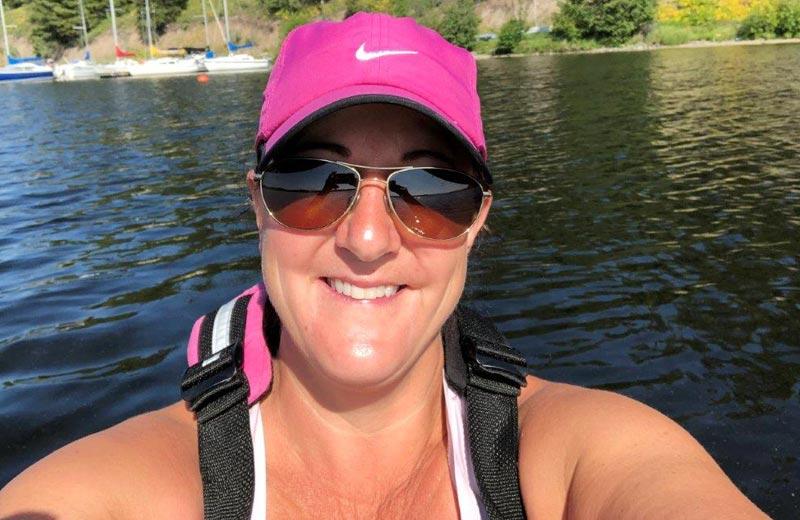Shelley Pallot came to Prince George for what she thought was going to be a year. 25 years later, she’s still here! Learn about her work as a renal dietitian and coordinator for the UBC Dietetics Integrated Internship program.
Tell me about your career as a dietitian.
I grew up in the lovely Okanagan, went to university at UBC, and then moved to Edmonton to complete my dietetic internship. What I thought was a one-year move to Prince George turned into 25! I’ve worked my entire career in all aspects of renal nutrition, but for the last few years, I’ve specialized in the pre-dialysis and peritoneal dialysis programs. Kidney disease is a challenging area, which is what keeps it interesting. I’m always learning. How I practiced 25 years ago is very different from how I work today. My work is always evolving. That’s exciting!
What’s your take on what dietitians do?
I think one of the greatest responsibilities dietitians have today is teaching. Dietitians take scientific knowledge and translate into easy-to-understand information that people use in their day-to-day lives. In my outpatient practice, the majority of my time is spent teaching patients, families, co-workers, and students about the intricacies of the kidney diet.
Could you describe a day in your life as a dietitian?
I work with an outpatient multidisciplinary team that consists of a dietitian, nurse, pharmacist, social worker, clerk, and nephrologist. We provide care to Northerners with kidney disease. As we’re a regional program, our patient population is geographically diverse. Consequently, we rely heavily on videoconferencing to connect with people in their home communities. Often, our pre-dialysis clinics are primarily patients who we are ‘seeing’ remotely rather than in person!
Two days a week, I work with pre-dialysis patients. Diet is a significant factor in delaying progression of kidney disease. Reducing salt intake and limiting protein intake are particularly important for these folks. I also work with people who are on peritoneal dialysis. Once again diet is particularly important for this population as we emphasize a high protein, low salt, high potassium diet. It can get a little tricky at times!
What’s one thing someone might not know about your role?
In my role, we work very closely as a team. I rely heavily on the pharmacist, the nurses, the social worker, and the nephrologists. We’re a very high-functioning team, which is one of the reasons I’ve stayed so long in renal. We have a lot of respect for each other and what everyone brings to the table. We’ve developed a lot of trust in each other’s skills and knowledge.
What part of your role is the most rewarding?
About 12 years ago, the UBC Dietetics Integrated Internship program expanded to include Northern Health. In collaboration with my colleague, Stefanie Finch, we jumped at the opportunity to take on the role of coordinating this new program. For me, it was an opportunity give back to the profession and participate in training a new generation of dietitians. Stefanie and I are very fortunate to work with a remarkable team of dedicated dietitians within Northern Heath who provide rich and diverse learning opportunities for our students. We have some amazing young dietitians completing their training in Northern Health and are happy to report almost half stay and continue to work and live within the North.
I must say, it’s satisfying to reflect on how our renal program has grown from its infancy in the mid 90s to the robust and distinct programs that it is today. The connections that I’ve built with patients and families over the years is rewarding. It’s been an interesting journey to be a part of.
How to see a registered dietitian
Do you think you, your patients, or someone you know could benefit from talking to a dietitian?
- There are dietitians in various communities across Northern Health (you might need a referral). Talk to your health care provider to learn more.
- BC residents can also access Dietitian Services at HealthLink BC, by calling 8-1-1 (or 604-215-8110 in some areas) and asking to speak with a dietitian.














Comments